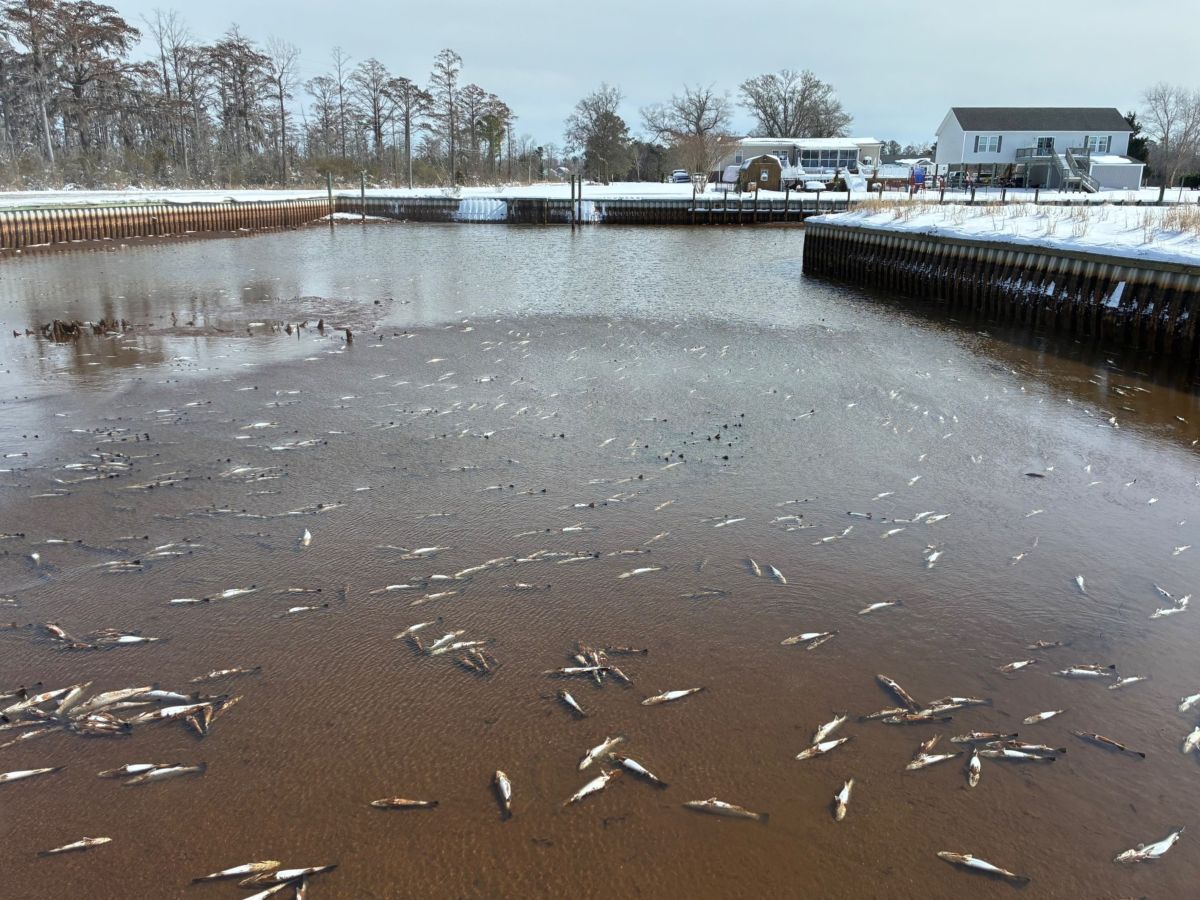
The world mourned in March as the last male northern white rhino, Sudan, passed away.
Guarded continuously by armed patrols, Sudan was euthanized and laid to rest as the last male of its kind – a clan of rhino that lived for millions of years and withstood every challenge except humanity. With only two females remaining, the northern white rhino is now staring down the barrel of certain extinction and represents, as Sudan’s caretakers put it, “a cautionary tale for humanity.” If we’re to prevent another human failure of this kind, we must use its passing as an opportunity to speak not only for other globally imperiled species, but for those in our own backyards. For North Carolinians, that means raising our voices on behalf of the red wolf.
Supporter Spotlight

A small handful of anti-wolf landowners have applauded this calamitous proposal. In their view, the red wolf’s disappearance would benefit private landowners in the recovery area. The science, however, suggests the opposite.
Since the red wolf makes regular meals of nest predators like raccoons, it’s believed that turkey and quail populations are higher in the Red Wolf Recovery Area than elsewhere. The red wolf also preys upon invasive nutria that otherwise damage crops and as the larger of the two species and when in healthy numbers, the red wolf will suppress coyotes. As for deer, the annual harvest has increased in the Red Wolf Recovery Area for the past 30 years.
All the evidence suggests that the Red Wolf Recovery Area is, in fact, one of the state’s richest hunting locales.
Yet, what is ultimately at issue here is not a matter of ecology or annual harvests. The real issue before us is one of commitment. The FWS is entrusted with protecting and recovering our nation’s most imperiled wildlife.
Supporter Spotlight
In the 1980s, critics thought the red wolf was a lost cause. Back then, according to FWS, the species was already “99 miles down a 100-mile-long road to extinction,” and, to some, the recovery effort seemed hopeless. After only two decades, however, heroic FWS biologists proved the skeptics wrong and accomplished the impossible: with 151 wild wolves, as well as a strong captive population, the species was placed on the road to long-term recovery.
Around that time, though, FWS experienced dramatic shifts within its senior leadership that would ultimately prove fatal. Rather than leaving the program in the hands of recovery biologists, agency administrators in Atlanta, acting on behalf of two anti-wolf landowners and under pressure from the state of North Carolina, brought the program to its knees, ending critically important management efforts that had sustained wolves in the wild. The red wolf population predictably collapsed and today fewer than 45 likely remain in the wild with only 23 known wolves on the landscape, according to the species status assessment.
If the agency moves forward with its latest plan, the wild recovery effort will be drastically curtailed, and the red wolf could become nothing more than a zoo curiosity — a prospect that, for virtually all North Carolinians, is simply unacceptable.
During the latest public comment period, over 55,000 comments were submitted from all 50 states, 99.8 percent of which were opposed to FWS’s plan. Only 25 comments were anti-wolf and only 10 comments backed FWS. Within the recovery area itself, 68.4 percent of landowners voiced their support for the species. Scientists have publicly urged the agency to reconsider, warning that its plan is not supported by science and is a sure-fire recipe for extinction.
In eastern North Carolina, we are blessed with an abundance of wildlife. Home to black bears, alligators, huge flocks of game birds, deer and turkey, it is a wildlife paradise. There are few comparable places left on the East Coast. It is also the last holdout of the red wolf’s historical territory, which was once spread throughout the Southeast. As a proud North Carolinian, I find that inspiring. We need only drive 30 minutes from the beach to discover, hidden among the pine forests and swamps, the world’s most endangered wolf.
Just as it took courage to pull the red wolf from the jaws of extinction, it will again take courage for the Fish and Wildlife Service to honor the public trust. It will also take your voice. Contact Acting Regional Director, Mike Oetker, and encourage him to stand by his agency’s hallowed mission and fight for the red wolf – otherwise we can be sure that the species will, like the northern white rhino, become a memory of our wilder past.
FWS Acting Regional Director Mike Oetker: Phone: 404-679-4000
Learn More
To stimulate discussion and debate, Coastal Review Online welcomes differing viewpoints on topical coastal issues. See our guidelines for submitting guest columns. The opinions expressed by the authors are not necessarily those of Coastal Review Online or the North Carolina Coastal Federation.







